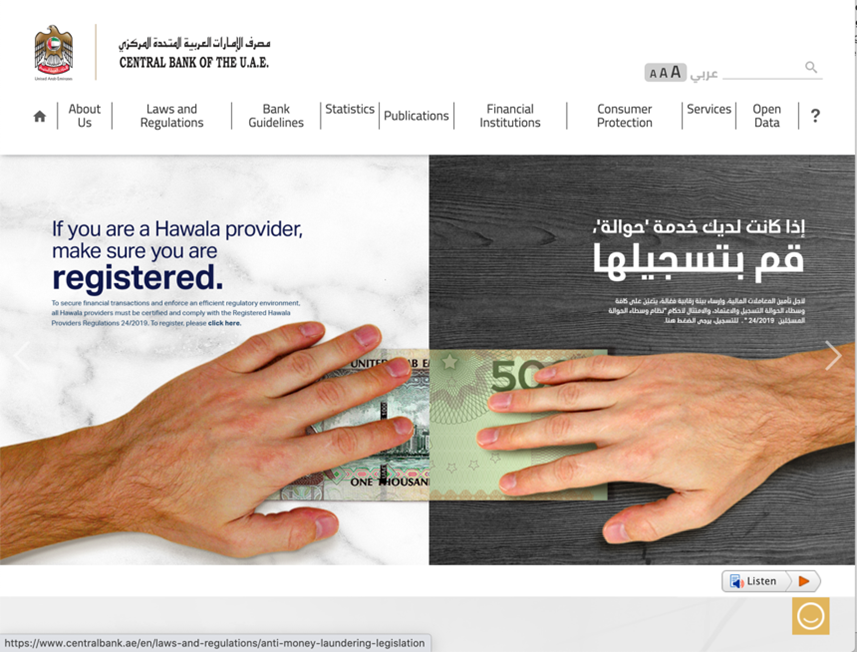The Central Bank of the United Arab Emirates Regulatory Body
Who are the Central Bank of the United Arab Emirates?
With roots stretching all the way back to 1973, the Central Bank of the United Arab Emirates (CBUAE) is charged with promoting the financial and monetary stability of the UAE, as well as with ensuring the resilience of the financial system. Additionally, the CBUAE has an important role in ensuring that the banking and financial system of the UAE works in the interests of the UAE by helping to support economic growth. As the UAE has become increasingly prominent in the financial services world – acting as a financial hub for the Middle East region – the CBUAE has quickly grown in size and function in recent years. As a result, the CBUAE itself has expanded significantly and the staff are spread across six offices, with the CBUAE Dubai office being the second largest after the headquarters in Abu Dhabi.
Regulatory areas and powers
Under the legislative framework that established the CBUAE, its core functions include banking operations, banking supervision, consumer protection, financial intelligence, financial stability, monetary management, reserve management, and research and statistics. Most of its regulatory powers come from the Islamic Bank Law of 1985 and the Federal Law No. (14) of 2018 Regarding the Central Bank & Organization of Financial Institutions and Activities. The 2018 law represented a major overhaul for the UAE’s financial services sector and provides the CBUAE Dubai with a range of powers relating to the regulation of the insurance sector.
As part of its overall mission to promote CBUAE standards, the organisation also has a responsibility to help develop and progressively improve CBUAE regulations. Most recently, additional resources have been put into the consumer protection function it serves, which includes a comprehensive consumer education centre. The aim of the consumer education centre is to help increase public financial literacy, particularly with regard to the CBUAE regulations put in place to protect consumers.
How to check if a broker is regulated by the Central Bank of the United Arab Emirates
If you want to check whether a broker you are interested in is licensed or regulated by CBUAE regulations, you have a number of options. Firstly, you can check the information listed by the broker itself. If it has a licence number listed, you will be able to check the status of it through the CBUAE website and find out whether it is in good standing or not. Secondly, you can search the list of financial institutions that the CBUAE has on its website. The CBUAE keeps a live register of all bodies licensed or regulated by it. Thirdly, if you are unsure, you can always submit a query to the CBUAE by email or post.
Making a complaint
Complaints regarding the activities of financial services institutions regulated by the CBUAE are processed directly through the CBUAE website. To make a complaint, you will need to sign in with your UAE Pass – a digital identity account issued to all UAE citizens, residents and visitors. Complaints are submitted directly through the CBUAE website and will be processed once received by the relevant department. There is also a facility to make anonymous complaints as a whistle-blower. These are submitted anonymously either in person, by writing or via phone. All complaints submitted in this manner will be kept completely anonymous.

